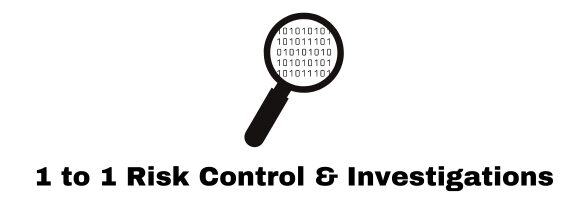405-458-5710
Confidentiality Guaranteed
405-458-5710
Confidentiality Guaranteed
You are Reading:
-
1 to 1 Risk Control & Investigations > Blog > Investigations > How Much Does It Cost to Hire a Private Investigator?

Jul
How Much Does It Cost to Hire a Private Investigator?
Understanding the Basics: Hiring a private investigator can be a crucial step in resolving personal, legal, or business matters. However, one of the first questions that come to mind is, “How much will it cost?” The cost of hiring a private investigator varies widely depending on several factors, including the nature of the investigation, the investigator’s experience, and the location of the investigation.
Types of Investigations: The type of investigation significantly impacts the cost. Common types of investigations include surveillance, background checks, infidelity investigations, corporate investigations, and digital forensics. Each of these requires different skills, tools, and time commitments, which are reflected in the pricing.
Hourly Rates: Many private investigators charge by the hour. Hourly rates can range from $50 to $150 or more, depending on the investigator’s expertise and the complexity of the case. For instance, a routine background check may be on the lower end of the scale, while a complex corporate investigation may command higher rates.
Flat Fees: Some services, like background checks or GPS tracking, may be offered at a flat fee. These fees can range from $100 to several thousand dollars, depending on the depth of the investigation. Flat fees provide a clear expectation of costs, which can be beneficial for budgeting purposes.
Retainers: For more extensive investigations, private investigators may require a retainer. A retainer is an upfront payment that acts as a down payment for the investigator’s services. The investigator will bill against this retainer as they work on the case. Retainers can range from $500 to $5,000 or more, depending on the expected scope of the investigation.
Additional Expenses: In addition to the investigator’s hourly rate or flat fee, there may be additional expenses. These can include travel costs, database access fees, equipment rental, and any other out-of-pocket expenses incurred during the investigation. It’s essential to discuss these potential costs upfront with your investigator to avoid surprises.
Complexity of the Case: The complexity of the case is a significant factor in determining the cost. Simple cases that require minimal surveillance or straightforward background checks will cost less than complex cases involving multiple locations, subjects, or sophisticated techniques. The more time and resources required, the higher the cost will be.
Investigator’s Experience: The experience and reputation of the private investigator also play a role in the cost. Experienced investigators with a proven track record of success may charge higher rates than those who are newer to the field. While it might be tempting to go with a lower-cost option, it’s important to consider the value of expertise and reliability in achieving the desired outcome.
Location: The location of the investigation can also affect costs. Investigations in metropolitan areas where the cost of living is higher may be more expensive than those in rural areas. Additionally, if the investigation requires travel to multiple locations, travel expenses will add to the overall cost.
Duration of the Investigation: The length of time required to complete the investigation is another critical factor. Investigations that can be wrapped up quickly will cost less than those that drag on for weeks or months. It’s important to have a clear understanding of the expected timeline and how it will impact costs.
Legal and Court Fees: In some cases, legal and court fees may be involved. If the investigation leads to legal proceedings, additional costs for legal representation and court filings may be necessary. It’s important to factor these potential expenses into the overall cost of the investigation.
Initial Consultation: Many private investigators offer an initial consultation, which may be free or charged at their hourly rate. This consultation is an opportunity to discuss the details of your case, understand the investigator’s approach, and get a clearer idea of the potential costs involved. It’s a valuable step in determining whether the investigator is the right fit for your needs.
Value of the Outcome: While the cost of hiring a private investigator can be significant, it’s essential to consider the value of the outcome. The information and evidence gathered by a skilled investigator can be invaluable in making informed decisions, protecting your interests, and achieving a successful resolution to your case. In many instances, the benefits far outweigh the costs.
Choosing the Right Investigator: When considering the cost, it’s also important to choose the right investigator for your needs. Look for an investigator with experience in the type of case you need to be resolved, a solid reputation, and positive client testimonials. The right investigator will provide transparency in pricing and work diligently to achieve the best possible outcome for your case.
The cost of hiring a private investigator varies widely based on several factors, including the type and complexity of the investigation, the investigator’s experience, and the location. While costs can add up, the value of obtaining critical information and evidence often justifies the expense. By understanding the factors that influence cost and choosing the right investigator, you can make an informed decision that meets your needs and budget.
- AI
- Bug Sweeps
- Car Security
- Cyber Crime
- Cyber-Stalking
- Digital Forensics
- Fraud
- Geo-Political
- GPS Tracking
- Hidden Cameras
- Identity Theft
- Investigations
- Misinformation
- Mobile Device Forensics
- Mobile Device Security
- Operational Security
- Privacy
- Psychology
- Situational Awareness
- Social Media Investigations
- Stalking
- Surveillance
- Uncategorized
